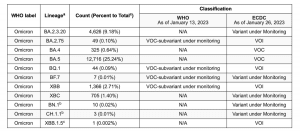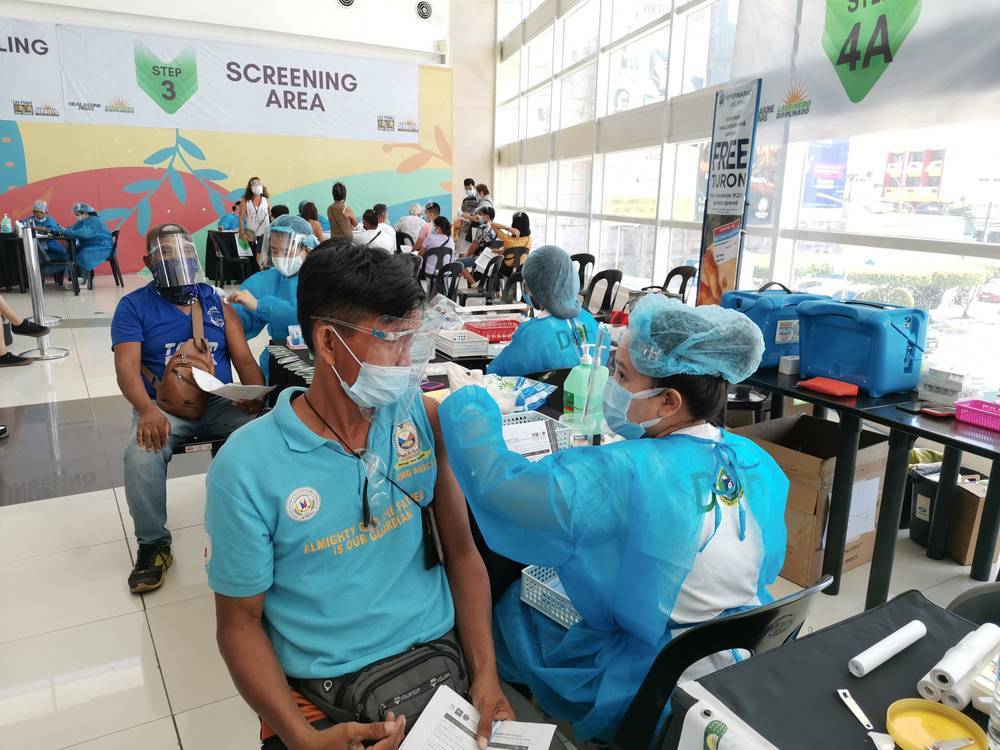On 7 Feb 2023, The Philippines officially detected its first ever XBB.1.5 (coded Kraken) Omicron subvariant of COVID-19.
It’s an offshoot of the XBB subvariant, which was first identified in September 2022. The XBB.1.5 subvariant of Omicron was made official by WHO on January 4 2023, when its senior epidemiologist Maria Van Kerkhove declared the variant as ‘the most transmissible subvariant that has been detected yet’.
Currently, in The Philippines, there has been a continuous decline in reported case numbers, hospitalisations, and COVID-19-related death. According to the latest nationwide bio-surveillance report published on 7th Feb 2023, the most dominant strain of COVID-19 remains Omicron subvariant BA.5 (25.24%), followed by BA.2.3.20 (9.18%). From the sample group selected, only 1 XBB.1.5 subvariant was identified.


Where and when has it been found?
XBB.1.5 is thought to have emerged in New York in late 2022. It has risen from just 3% to nearly half of all COVID cases identified in the United States in two months’ time by late January 2023. It has also been sequenced all over the world and continues to be on the rise. Meanwhile, COVID hospitalisation has been on the rise since late last year in the US, UK, Australia, and many European countries.
In Asia, South Korea and The Philippines are the only country officially announced their domestic cases of XBB.1.5. According to Global Initiative on Sharing Avian Influenza Data (GISAID), the variant has been detected in 59 countries across six continents. However, judging from its rapid transmission rate, most likely countries across Asia and the rest of the world have had cases of XBB.1.5 subvariant infections. As the epidemiology data suggested, XBB.1.5 has not made its way to the centre of The Philippines’ COVID-19 pandemic yet.
How does XBB.1.5 compare to other variants?
Differences: As mentioned above, XBB.1.5 evolved from the XBB variant. The XBB variant has a mutation that beat the body’s immune defences but renders its ability to infect human cells. The XBB.1.5 subvariant has overcome that with the new mutation. It is both able to cause mass infections and either cripple or avoid our immune defence. The World Health Organization (WHO) confirmed that XBB.1.5 has a “growth advantage” over other sub-variants seen so far.
Similarities: Patients infected with the new variants have similar symptoms compared to other variants. No evidence has indicated that it could cause more serious infection. Most patients experience cold-like symptoms including fever, cough, shortness of breath, tiredness, loss of taste or smell etc.
Will current COVID vaccinations work against XBB.1.5?
Scientists have not collected enough clinical data to determine whether the existing immunity, whether it’s from previous infection or vaccination, could work effectively against the new variant. There have been studies carried out on XBB variants indicating that there can be 40% to 60% protection from previous immunisations. However, it has been reported that out that there are higher chances for reinfection or breakthrough infections from XBB.1.5 compared to other existing variants.
How does the rest of Asia look like?
Since South Korea reported its first XBB.1.5 case in early January, we have not seen a rapid rise in cases numbers in the country yet. Despite the surge in case numbers from China in late 2022, the country seems to be recovered from its first nationwide wave of COVID infections and the pressure on its public health system is easing. South East Asia is also enjoying its relatively quiet and peaceful period in terms of the COVID situation.
What can I do to prevent infection?
General preventative measures for the new variant are the same as previous variants, as they transmit between people in exact same fashion.
- Mask wearing: the single most effective way in reducing transmission
- Maintain 1.5 metres of social distancing whenever possible
- Avoid public gathering
- Open windows to improve ventilation
- Hand hygiene: avoid touching facial areas unless hands are clean
- Get vaccinated: consult your GP for advice if you are unsure. Despite the lack of data on their efficacy for the new variant, vaccination is still good at reducing the hospitalisation rate and the risk of getting severe infections against most other variants.

